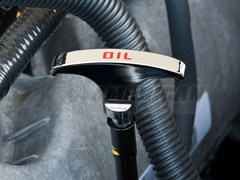FORD, FORD MUSTANG, MUSTANG GT, SVT COBRA, MACH 1 MUSTANG, SHELBY GT 500, COBRA R, BULLITT MUSTANG, SN95, S197, V6 MUSTANG, FOX BODY MUSTANG,MACH-E, AND 5.0 MUSTANG ARE REGISTERED TRADEMARKS OF FORD MOTOR COMPANY. DODGE, DODGE CHALLENGER, DAYTONA 392, DAYTONA R/T, DODGE CHARGER, SRT 392, SRT8, R/T, RALLYE REDLINE, SCAT PACK, SRT HELLCAT, SRT DEMON, T/A, PENTASTAR, AND HEMI ARE REGISTERED TRADEMARKS OF FIAT CHRYSLER AUTOMOBILES (FCA). SALEEN IS A REGISTERED TRADEMARK OF SALEEN INCORPORATED. ROUSH IS A REGISTERED TRADEMARK OF ROUSH ENTERPRISES, INC. CHEVROLET, CHEVROLET CAMARO, CAMARO, LS, LT, LT1, SS, Z/28, ZL1, ECOTEC, CORVETTE, ZO6, ZR1, STINGRAY, AND GRAND SPORT ARE REGISTERED TRADEMARKS OF GENERAL MOTORS LLC.. AMERICANMUSCLE HAS NO AFFILIATION WITH THE FORD MOTOR COMPANY, ROUSH ENTERPRISES, FIAT CHRYSLER AUTOMOBILES, SALEEN, OR GENERAL MOTORS LLC.. THROUGHOUT OUR WEBSITE AND PRODUCT CATALOG THESE TERMS ARE USED FOR IDENTIFICATION PURPOSES ONLY. 2003-2022 AMERICANMUSCLE.COM. ®ALL RIGHTS RESERVED


